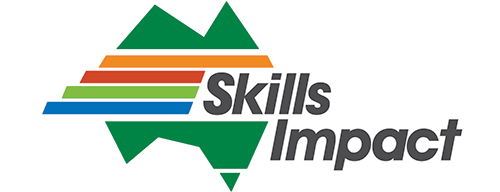We are seeking your feedback on projects that have been proposed for 2020 – 2021 and specific changes to the industry environment that have been identified in this year’s Annual Update to the IRC Skills Forecast and Proposed Schedule of Work (Skills Forecast).
This year’s Annual Update includes information about employers’ use of training packages and qualifications, barriers to hiring apprentices and trainees, and reasons behind non-completion rates. It also looks at alternative training being delivered, some of which draws on the training package, but is not delivered by registered training organisations.
Proposed projects are summarised below. Feedback is being collected up until 30 April 2020.
The draft Annual Update will be submitted from the Agriculture and Production Horticulture Industry Reference Committee (IRC) and the Amenity Horticulture, Landscaping, Conservation and Land Management IRC to the Australian Industry and Skills Committee (AISC) at the end of April, for their consideration.
Proposed Projects
2020-21
Project 1: Review of Unit Sectors
Given the size and complexity of the AHC Training Package, this proposal is to continue the unit sector approach for Year 2 of the strategy, as outlined in the current 2019 – 2022 Skills Forecast.
- Cluster 1: Landscaping, including Parks and Gardens
- Cluster 2: Broad Acre and Seed Production
- Cluster 3: Dairy and Milk Harvesting
Project 2: Therapeutic Horticulture
There is a burgeoning therapeutic horticulture industry in Australia, but no vocational course to support the skills required across both health and horticulture. The Therapeutic Horticulture Association has set industry expectations to determine membership. Members must have qualifications and experience in both health and horticulture. This proposal is to develop new skill sets in therapeutic horticulture, to provide the needed skills and knowledge to provide services in this area of specialisation, either for health workers or those working in horticulture, looking to undertake work in this field.
Project 3: Animal Reproduction
Continued consumer demand for animal-based proteins will place increasing pressure on farmers to use improved genetics in their breeding programs. New processes and technologies in the livestock industry are helping farmers to maintain a sustainable production system, improve profitability and competitiveness. The aim of this project is to review livestock units relating to animal reproductive practices, including impregnation techniques, pregnancy testing and birthing, so they include skills for current processes and technologies.
Project 4: The Rehabilitation of Mined Land
Recent mine closures, especially across Northern Australia, have highlighted a skills gap in current conservation and land management qualifications for work to rehabilitate closed mines. Large mining companies recruit Environmental and Rehabilitation Specialists and Advisors as part of their remit contract. These roles may be supervised by university educated Environmental Engineers, however the field workers that perform the rehabilitation tasks are most suited to VET qualified employees. The responsibility for this work is often being left with Indigenous groups (including Indigenous Rangers), either by agreement or by default.
Project 5: Indigenous Consultation for Annual Updates & Future Projects
A research and development project is proposed to improve long-term skills outcomes for Indigenous participants in the Australian workforce and the vocational education and training (VET) system. The aim is to uncover future projects that could expand productivity, employment and economic development opportunities, open new and emerging markets, improve training and job outcomes and upgrade industry skills in negotiations and partnerships with Indigenous business and community organisations. This will be a joint project, overseen by both the Aquaculture and Wild Catch IRC and the Amenity Horticulture, Landscaping, and Conservation and Land Management IRC. Both IRCs acknowledge the importance of Aboriginal and Torres Strait Islander involvement in the development of all aspects of their industries.
